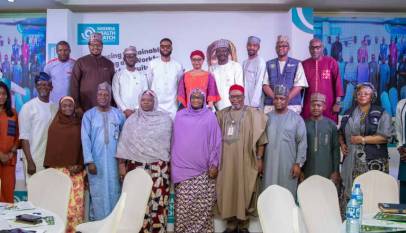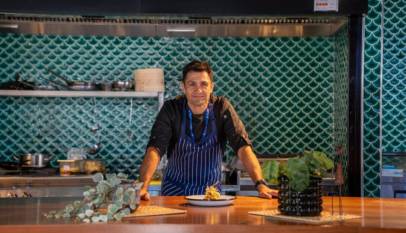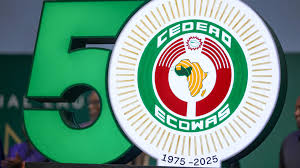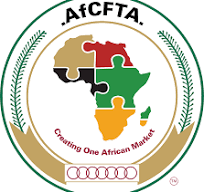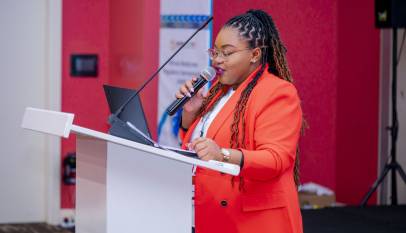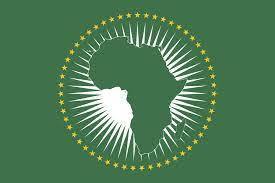“Inclusiveness, the best panacea to violence in Plateau state”
Fatima Suleiman is executive director of the Jos, Nigeria-based Islamic Counseling Initiatives of Nigeria, ICIN, an NGO working in the area of gender issues including women empowerment, girl-child education and community peace building. She speaks to African Newspage on her organization’s efforts to assist the needy and less-privileged, especially women and young girls.
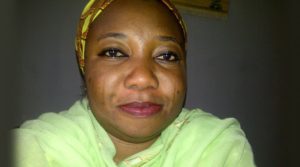
How did the Islamic Counseling Initiatives of Nigeria come about?
Islamic Counseling Initiatives of Nigeria (ICIN) was founded in February, 2006, as a result of numerous challenges faced by many communities of Jos-North which resulted from the effects of the 2001 Jos crisis in Plateau state. ICIN started its activities with focus on
trauma healing seminars, trainings and assisting the needy and less-privileged, especially women and young girls.
ICIN mobilized for relief materials for these groups irrespective of religion, ethnicity, and social class. Over the years, ICIN has broadened its activities and scope to include girl-child education, health initiatives, good governance, gender issues and community peace building. We envision a society where poverty is reduced; education and health needs are addressed. Our mission is to promote the health-care, educational needs and economic empowerment of vulnerable groups through advocacy, research, capacity building and partnerships towards a developed society. ICIN’s goal is to build the capacity as well as enhance the skills of people and institutions in the areas of education, economy and health for the sustainable development of our society.
How far have you gone towards achieving the vision and mission of ICIN?
In 2009, ICIN signed an MOU with German Development Cooperation (GIZ) for a project on Girl- Child Education and Child’s Rights Law. We also signed another MOU with the Nigeria Stability and Reconciliation Programme (NSRP) for a 3-year long Security and Good Governance project, which we are currently implementing in Jos-North and Wase
LGAs of Plateau State.
In the area of training, ICIN has trained over 400 stakeholders in Jos-North and Wase LGAs in conflict management and transformation, strategic planning, early warning, response and mitigation of conflict. Other areas we have trained people are civic education around conflict management, prevention of electoral violence and community development. The trainings were aimed at reducing violent conflicts in these LGAs and responding to conflict issues
non-violently.
Moreover, ICIN organizes an annual pacesetters award and graduation ceremony for the beneficiaries of our skill acquisition programmes. This is a mentoring program that acknowledges distinguished personalities and corporate bodies that have contributed immensely to educational development and peaceful co-existence of communities in
Plateau state by presenting them with awards. Thus far, over forty (40) distinguished personalities and corporate bodies have been recipients of the award. And fifty-five (55) skills acquisition beneficiaries were graduated with certificates in Information and Communications Technology (ICT) and sewing at the ICIN Learning Centre.
Between 2008 and 2012, ICIN implemented a malaria outreach both in Jos-South LGA and Jos-North LGA, with the support of NASCO Group of Companies. Over 6,000 mosquito-treated nets were distributed, 400 people tested for malaria parasites and anti-malaria drugs
distributed. We also have an empowerment program, and about thirty 30 women, both
Christians and Muslims, were empowered with skills and grants in a collaboration we had with the Plateau Ministry of Women Affairs and Social Development (MWASD). In another project carried out in partnership with the National Directorate of Employment (NDE), 10
beneficiaries, both Christians and Muslims, were also empowered with soft loans.
Your organization works with women and children in Plateau state. What would you say are the major challenges facing this category of people in the state?
At the moment, there are a lot of challenges working with the communities, we thank God that we are experiencing relative peace in Plateau state but we need a lot of laws concerning women and children which if implemented will go a long way in helping women and children
in the area of rehabilitation and reintegration back into their communities, for those that have lost their homes in areas affected by the crisis.
Another issue is the high rate of out of school youth and lack of empowerment programs by the government for people who have lost their means of livelihood to the crisis since there is a limit to what civil society organizations like us can do. In terms of decision making
process, women have not been really included in the areas of governance which make the process of women empowerment on the Plateau very slow.
You talked of lack of women’s involvement in decision making process. How serious is it in Plateau state?
I will say it is not good for women in Plateau state as there is only one woman in the Plateau State House of Assembly, who is also the chair of women’s committee in the assembly and only 2 out of the 13 commissioners appointed by the current governor are women, so women’s representation is very low.
One of your thematic areas of work is peace-building and Plateau state is infamous for ethno religious conflicts. What do you think is the primary motivation for these incessant conflicts?
We thank God for the peace being enjoyed on the Plateau recently and I can say that the crises on the Plateau are politically motivated because over the years those of us that were born on the Plateau and our parents were also born here have lived peacefully for generations,
our parents lived peacefully and it didn’t matter whether or not one was Muslims or Christians. Some of us though Muslims went to missionary schools. So, I think the crises in Plateau state are politically motivated and about selfish interest, and religion is a
secondary factor because over the years religion wasn’t really an issue.
Some are of the opinion that economic factors, access to power and economic resources including land are part of the reasons for the conflicts. What do you think?
Well, like you rightfully said the scuttle for limited resources and power are the major factors for the crises on the Plateau because for example, the populations of Jos North are the biggest tax payers in this part of Plateau state and of course tax payers are entitled to utilization of resources, access to social amenities and a role in governance process. So, limitation in terms of access to resources and political power has contributed to the crises.
The relative peace being enjoyed on the Plateau now is credited to among others, the efforts of several NGOs like yours. What do you think must be done to sustain peace on the Plateau?
Well! We thank God for the present government of Barrister Simon Lalong, his government has been inclusive, by carrying along both indigenes and non-indigenes of Plateau state. If the peace on the Plateau must be sustained, there is need for sincerity of purpose, everyone has to be carried along and justice has to be served to all. Findings of previous panels of inquiry have to be implemented and people need to know what really happened and perpetrators of all those conflicts that cause so many deaths have to be brought to book. Justice has to be served for those who have been wronged because in the country side, there are people who have, lost their farmlands and those who have lost their cattle, compensation has to be paid to those people. On the side of government there has to be honesty of purpose and transparency in all ramifications, including in the area of gender equality. People at the helm of affairs have to carry people along by providing the basic social amenities they need.


